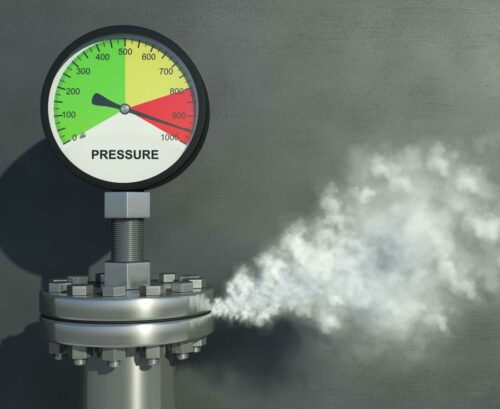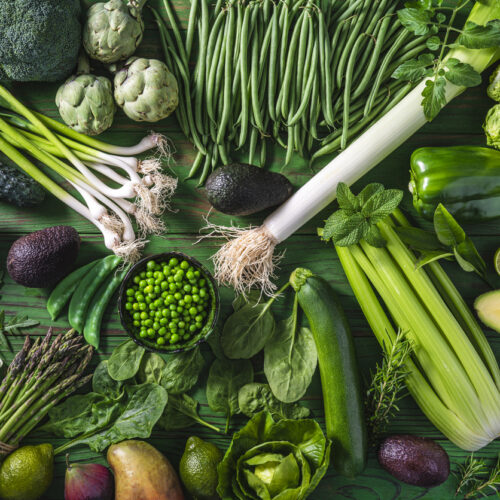
The best chill pill for stress might be the food you put on your plate. Healthy Food Guide investigates the link between what you eat and how you feel.
How many times a day do you feel stressed?
It might be when you’re stuck in a traffic jam or trying to meet work deadlines while juggling family commitments — not to mention the ongoing challenges of a global pandemic. Even watching the news can trigger a stress response. A little stress is okay, but it shouldn’t be a permanent state of mind. If getting stressed has become a daily event, this ‘fight or flight’ response could be jeopardising your health.
“Stress can lead to lowered immunity, increased risk of heart attack and stroke, digestive upset and weight gain via elevated appetite and blood glucose,” explains Dr Deborah Hodgson, Director of the Laboratory of Neuroimmunology at the University of Newcastle.
Stress also affects gut bacteria, where much of the body’s immune response occurs.
“Emerging evidence suggests that stress is associated with reduced richness and diversity of the gut microbial community,” says Dr Simone Peters, Director of the Mind + Gut Clinic in Melbourne. This, in turn, can lead to a significant increase in anxiety.
How stress affects your body
Brain
Chronic stress rewires your brain, causing higher stress reactions to smaller triggers. This adversely affects your memory, judgment, reasoning ability and the way you feel.
Immunity
Stress lowers your immunity and reduces natural killer cells, compromising your ability to fight off colds and flu. Long-term stress may also lead to diseases such as cancer.
Waistline
Excess amounts of cortisol, the primary stress hormone, encourages storage of visceral belly fat, which drains to the liver, heart and other organs.
Heart
Stress-induced adrenaline and the hormone noradrenaline increase heart rate and blood pressure. More extreme or long-term stress responses can damage heart muscles and cause irregular heart rhythms.
Gut and bowel
Stress slows digestion. It can increase muscle spasms in the colon, causing pain, bloating and wind, and can also lead to constipation, diarrhoea, acid reflux and heartburn.
Skin
You might feel flushed or sweat more. Stress hormones can also encourage itchy skin, rashes, pimples and inflammation.
Muscles
These tense up in readiness for physical action as part of the ‘fight or flight’ response. If your stress is chronic (ongoing for a long period), it may also cause muscle pain or aggravate existing muscle conditions.
Sleep
Excess cortisol keeps you alert and aroused, making it harder to fall asleep and stay asleep.
Foods that soothe stress
Certain foods can correct stress-triggered body imbalances while helping you to stress less. “Research shows that people who eat a diet rich in fresh fruit and vegetables, whole grains and lean protein are less depressed and less anxious than those eating a diet high in processed foods,” says Professor Felice Jacka, Director of the Food and Mood Research Unit at Deakin University.
Natalie Parletta, nutritionist and former Senior Research Fellow in Nutrition and Dietetics at the University of South Australia, recommends eating more of the following foods to help beat stress:
Salmon
Omega-3 fatty acids in oily fish like salmon, as well as nuts, chia seeds and dark leafy greens, help to maintain the health of the brain’s cell membranes and encourage the transmission of ‘feel-good’ chemicals like dopamine and serotonin.
Almonds
Almond nuts are a good source of the mineral magnesium, a natural muscle relaxant. Low magnesium levels have been linked to higher anxiety levels.
Broccoli
People who eat three to four serves of vegetables, including broccoli, every day experience lower levels of stress, according to research from the University of Sydney. As with fruit, vegies are full of beneficial antioxidants known as polyphenols.
Minestrone
The Mediterranean diet, which includes bean and vegetable-laden minestrone soup, is high in minerals such as magnesium and zinc. These nutrients are vital for important biochemical reactions that boost mood and promote brain function.
Blueberries
These and other fruits are packed with polyphenols — potent antioxidants that support brain health. Fruit is also high in fibre, which keeps blood sugar and energy levels stable, helping to reduce anxiety and depression.
Rye bread
Whole grains such as rye release energy slowly into your body, which helps to keep hormones stable. They also boost serotonin — the ‘happiness hormone’.
Miso
Women who eat more fermented foods, such as tofu and miso, have lower levels of social anxiety. Aim to serve up a little sauerkraut, sourdough bread, kefir (fermented milk) or kimchi (Korean-style fermented cabbage) every day.
Foods that ramp up stress
Want to reduce stress and tension? Then keep your consumption of the following foods to a minimum:
Lollies
The high sugar content of these ramps up stress by increasing blood glucose, insulin and hormones like adrenaline and cortisol. They can also cause weight gain and increased anxiety.
Alcohol
Kicking back with a wine or beer may push your ‘relax’ button, but alcohol also triggers the release of the stress hormone adrenaline.
Coffee
That jittery feeling you get after drinking too many coffees is because caffeine makes your body pump out adrenaline and cortisol.
Salty chips
High salt intake increases blood pressure, and your body responds to this by releasing stress hormones.
Fast food
Typically made using processed and fried foods, these meals are high in fats and sugars, causing low-grade inflammation. They can also contribute to anxiety and depression.
Article sources and references
- American Academy of Dermatology. 2014. Reducing stress may help lead to clearer skin. ScienceDaily, 7 August, 2014. Accessed December 2021.https://www.sciencedaily.com/releases/2014/08/140807103642.htm
- Australian Psychological Society. 2015. Stress and wellbeing in Australia survey 2015. Accessed December 2021.https://psychology.org.au/news/media_releases/8nov2015-pw
- Hilimire et al. 2015. Fermented foods, neuroticism, and social anxiety: An interaction model. Psychiatry Res. 228(2): 203–8.https://pubmed.ncbi.nlm.nih.gov/25998000/
- Jacka et al. 2014. Dietary patterns and depressive symptoms over time: Examining the relationships with socioeconomic position, health behaviours and cardiovascular risk. PLoS One. 9(1): e87657.https://journals.plos.org/plosone/article?id=10.1371/journal.pone.0087657
- Monash University. 2016. Chronic stress builds highways for cancer to spread. Accessed December 2021https://www.monash.edu/news/articles/chronic-stress-builds-highways-for-cancer-to-spread
- Nguyen et al. 2017. Fruit and vegetable consumption and psychological distress: Cross-sectional and longitudinal analyses based on a large Australian sample. BMJ Open. 7(3): e014201.https://bmjopen.bmj.com/content/7/3/e014201
www.healthyfood.com










